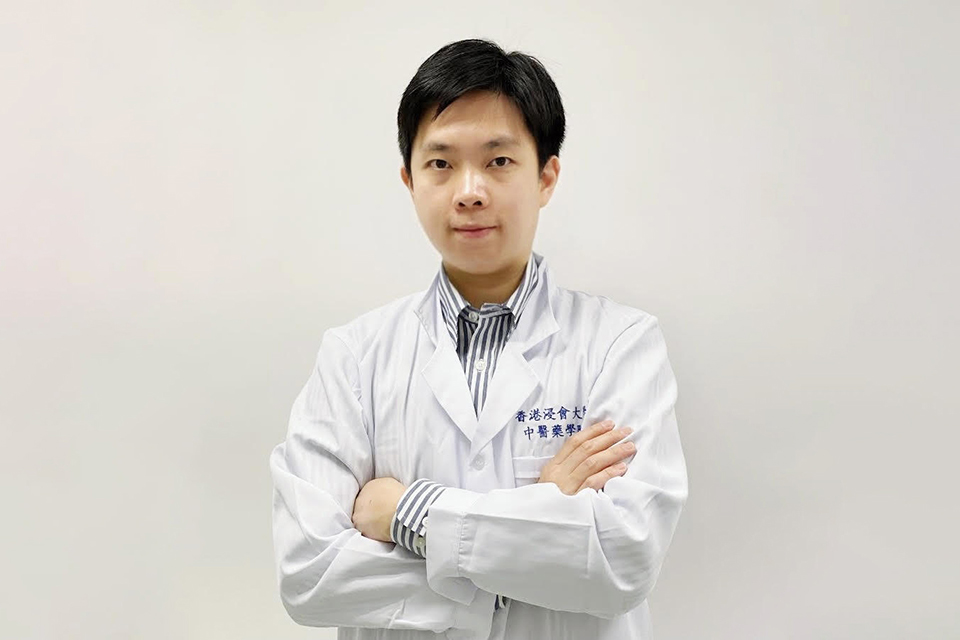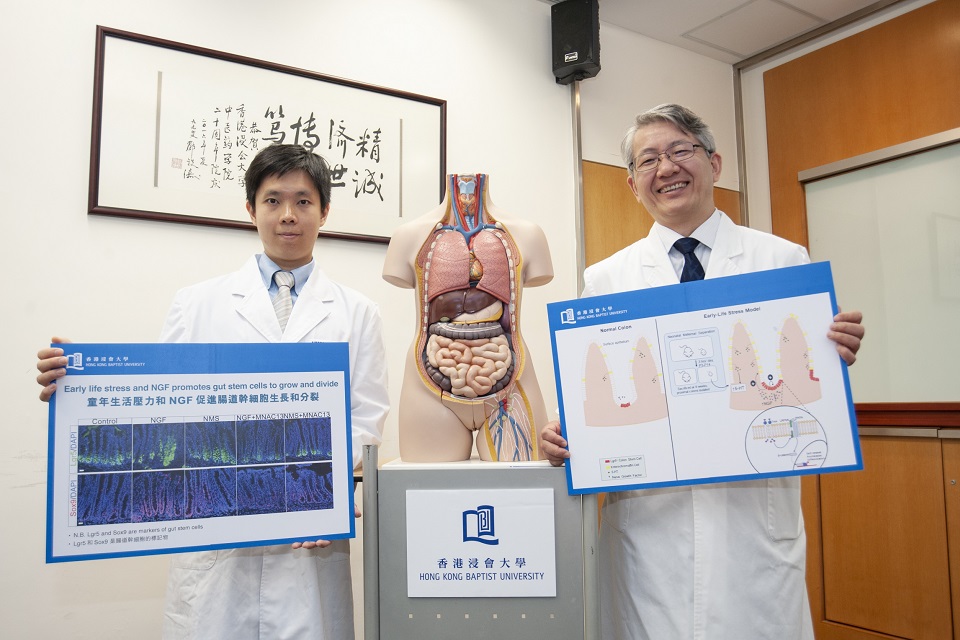Discover HKBU
From Biochemistry to Chinese medicine
26 Apr 2022
As an undergraduate student majoring in Biochemistry, Dr Xavier Wong came across a research topic for his final-year project that intrigued him. Progeria, a rare disease that results in premature ageing and death in children, is caused by mutations in a gene known as lamin A. In their project, Dr Wong and his team studied the effects of inhibitors that restore the normal function of lamin A, thereby delaying the ageing process.
This experience set him off on a quest to improve human health through research. “Our progeria study has the potential to change the way we treat the disease. I find it rewarding that I can use research to make a difference and improve the patients’ quality of life,” says Dr Wong, Assistant Professor of the School of Chinese Medicine (SCM) and a member of the Computational Medicine Lab.
Using modern science in Chinese medicine research
Dr Wong first became interested in understanding complex biological processes when he learned about genomic sequencing in secondary school. “I was fascinated by how genes are converted into mRNA molecules, which are then translated into the proteins that carry out all the functions necessary for life,” he says. “This process almost seemed miraculous to me, and it made me want to learn more.”
Curious to understand more about these complex biological interactions, he studied Biochemistry at the University of Hong Kong. There he discovered a passion for research and the pursuit of knowledge, which inspired him to embark on his current academic journey. After completing his PhD, he conducted postdoctoral research at the University of Hong Kong and the Chinese University of Hong Kong, before joining HKBU as a Research Assistant Professor in 2016.
In the SCM, Dr Wong works with Professor Bian Zhaoxiang, Tsang Shiu Tim Endowed Professor in Chinese Medicine Clinical Studies and Associate Vice-President (Chinese Medicine Development), to study the underlying causes of gastrointestinal diseases, as well as various treatments for these conditions. Their findings on the link between traumatic psychological events occurring in childhood and the development of Irritable Bowel Syndrome were published in Nature Communications.
For Dr Wong, the research transition from Biochemistry to the field of Chinese medicine was smooth. “The School has been carrying out innovative research in Chinese medicine, and the research findings have to be able to integrate into western medical practice. Therefore, we need to use scientific approaches in our studies in order to advance the internationalisation of Chinese medicine,” he says. “I believe my background in modern science can contribute to the development of Chinese medicine research in the School.”
Developing novel treatments for metabolic diseases
One major research direction in Dr Wong’s lab involves the development of new treatments for metabolic diseases. “Life expectancy in Hong Kong has been increasing, and ageing is related to a number of metabolic diseases such as obesity, stroke and diabetes. It is important that people are not only able to live longer, but live healthier,” he says of his goal to promote healthy ageing. “I hope that my research can help people lessen the risk of disease so they can stay healthy later in life.”
The motivation for his research also comes from a personal place. A few years ago, a family member was diagnosed with diabetes, which requires long-term interventions and lifestyle changes. Determined to help those suffering from metabolic diseases, he has been studying the biochemical processes that drive the initiation or progression of this group of metabolic diseases.
In a study that was recently published in Nature Metabolism, Dr Wong and his research team identified an enzyme as a promising target for bodyweight control. In another study, his team has discovered a new host factor contributing to the development of insulin resistance associated with ageing and obesity. The manuscript of their research findings is under revision in Nature Communications.
“Obesity and diabetes are among the most common metabolic diseases that plague our world today. Apart from factors such as an unhealthy diet or lack of exercise, the underlying causes of metabolic diseases are associated with genetic mutations and the microbes in our gut. By studying the factors that drive the onset of these diseases, we can develop more effective treatments to prevent or delay their progression,” says Dr Wong.
His research team has identified some Chinese medicine extracts that have shown some promising results in animal model experiments in terms of their ability to regulate body weight and help improve the conditions related to metabolic disorders that result from insulin resistance or high cholesterol and lipid levels. “Some weight loss pills on the market may cause side effects, and the long-term use of these pills may be harmful to our health. That’s why our team hopes to develop new treatments for obesity,” Dr Wong says. “Chinese herbal medicine is extracted from mostly natural substances. When used in the right combination, the herbs can be beneficial to our health,” he says.
An auspicious outlook for research
As a researcher who was born and raised in Hong Kong, Dr Wong thinks that the city’s unique position in terms of its connections with mainland China and the international community have enabled scientific research to flourish here. Local universities are also equipped with state-of-the-art facilities that are on a par with top universities around the world.
He encourages students who aspire to pursue a career in research to develop their passion and engage with a topic that deeply interests them. “Research is about creating and discovering new knowledge. You have to be genuinely passionate about research and not see it as a job,” he says. “What keeps me involved with research is the sense of purpose and fulfilment I get every time I achieve a breakthrough in the experiments.”
With the establishment of Hong Kong’s first Chinese Medicine Hospital, Dr Wong believes that the new hospital will play an important role in promoting the development of Chinese medicine. “The hospital will provide more opportunities for HKBU to conduct clinical research, and this will undoubtedly enable the University to further the development of more effective Chinese medicine drugs and therapies,” he says.

